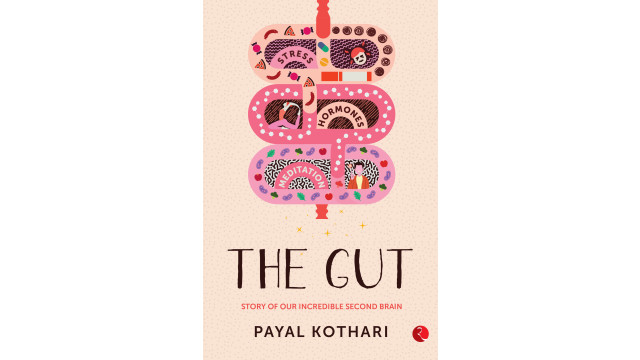Pro-and Prebiotics for the Gut

Gut health has a positive impact on overall wellbeing. The health of our gut is measured in terms of the prebiotic, probiotic, and postbiotic elements in our food. Prebiotics and probiotics are the “interior designers” of your gut. They play important roles in sustaining a healthy gut microbiome and supporting general health. Incorporating them into our diets can have a positive impact on our overall health. When the gut microbiota is imbalanced, it can lead to digestive issues, weakened immunity, inflammation, and even chronic diseases. As Dr Bhaswati Bhattacharya, Ayurvedic scholar says, “You are what you digest, not what you eat.”
Benefits of Prebiotics
Prebiotics are special plant fibers that help healthy bacteria grow in your gut. They are non-digestible fibers and natural sugars that double as food for beneficial bacteria to multiply. They also act as fuel for the probiotics, helping them to thrive and multiply. Since these fibers cannot be digested by our own enzymes, they are fermented by the gut bacteria in the colon. As Nadia Mahmud, RDN, MPH nutritionist with Roundglass explains “Think of our microbiome as a garden and we need to provide the right ‘fertilizer’ or prebiotics to make the good bacteria grow and enough probiotics to help weed out the weeds or ‘bad bacteria.’”
Here are foods rich in prebiotics to aid good bacteria growth:
Chicory root: One of the best sources of prebiotics, chicory root can be consumed as a supplement or added to coffee as a natural sweetener.
Jerusalem artichoke: This vegetable is high in inulin which is a type of soluble prebiotic fiber that helps gut microbiome grow.
Garlic: Besides adding flavor to meals, garlic is an excellent source of prebiotics. It aids the growth of bifidobacteria or y-shaped bacteria in the intestine that can digest fiber and help prevent infection.
Onions: Onion contains a specific type of fiber called fructooligosaccharides (FOS), which acts as a prebiotic.
Banana: Ripe banana contains a prebiotic fiber called resistant starch, which provides nourishment for gut bacteria.
Legumes: Seeds of the family include chickpea, lentil, and red kidney bean that are high in fiber and boost good bacteria in the gut.
Grains: Oats, barley, and bran have high prebiotic fiber and roughage.
Benefits of Probiotics
Probiotics are “made of good live bacteria and/or yeasts that naturally live in your body.” When you consume enough of them, these live microorganisms populating your digestive system offer health benefits. Commonly referred to as "good bacteria," probiotics can help restore the balance of the gut microbiome by inhibiting the growth of harmful bacteria. Probiotics can be sourced from the food you eat or taken as supplements. “A good way to make sure your gut microbiome is balanced is to have fermented foods that offer a lot of probiotics, and that will make sure your body is healthy and stays balanced,” says Chef Moina Oberoi, a fermentation expert in India.
Examples of probiotic-rich foods include:
Yogurt: It is one of the well-known sources of probiotics. Choose yogurt with live and active cultures.
Buttermilk: Live cultures found in homemade buttermilk offers soothing lactic acid for the gut.
Kefir: Rich in probiotics, as a fermented milk drink kefir is a great addition to your diet.
Sauerkraut: Fermented cabbage is not only a tasty side dish but also a good source of probiotics.
Pickles: Packed with probiotics and fermented goodness, pickles support gut health, digestion, and a balanced microbiome.
Kimchi: This traditional Korean fermented vegetable dish is probiotic-packed.
Kombucha: A fermented tea with live bacteria and yeast cultures.
Miso: The simple Japanese fermented soybean paste can help reduce bowel inflammation.
Benefits of Postbiotics
Postbiotics are the resulting waste your body leaves behind after digesting both prebiotics and probiotics, byproducts of the fermentation process that occurs when probiotics consume prebiotics. Some of these leftovers: short-chain fatty acids (SCFAs), vitamins, and enzymes, along with additional metabolites. Besides promoting gut health postbiotics have been associated with various health benefits, such as reducing inflammation and supporting the immune system. Healthy postbiotics, full of nutrients like vitamins B and K plus amino acids, curb the growth of harmful bacteria.
Fermented Foods
According to author and fermentation guru, Sandor Katz, “Fermenting opens the door to another level of connection with the earth, cultivating microorganisms.”
Fermented foods introduce beneficial bacteria into the gut, helping restore and maintain a healthy, balanced microbiota. What good stuff is going in your food during fermentation? Microorganisms are going to work to break down sugars and starches. This produces lactic acid, alcohol, or other compounds, giving fermented foods like pickles their distinct flavor and texture. Beneficial bacteria is able to thrive and multiply, turning ordinary foods into probiotic powerhouses with a positive impact on gut health.
Be choosy with your fermented foods and keep an eye out for live and active cultures that offer the most probiotic benefits. Mahmud says, “Start with a goal of two servings of fermented products per day with a goal to increase as much as possible, since new research shows positive results on inflammation and longevity with consuming as many as five servings a day of fermented foods.”
Cream of Miso Mushroom Soup by JLFields
Key Takeaways
- Probiotic and prebiotic foods aid digestion.
- They help good bacteria to grow in the gut.
- They boost the immune system.



